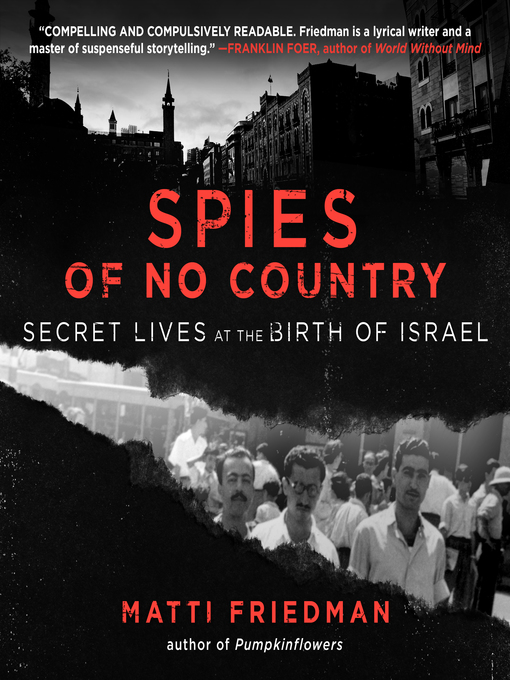

Matti’s first book, The Aleppo Codex, an investigation into the strange fate of an ancient Bible manuscript, won the 2014 Sami Rohr Prize, the ALA’s Sophie Brody Medal, and the Canadian Jewish Book Award for history. Editions were published in the US, Britain, Canada, Israel, and China. It won the 2017 Vine Award for Canadian Jewish literature and the Canadian Jewish Literary Award for memoir, and was shortlisted for the 2017 RBC Taylor Prize, the Writer’s Trust Prize, and the Yitzhak Sadeh Prize for military writing (Israel). Pumpkinflowers was selected as one of the year’s best by Booklist, Mother Jones, Foreign Affairs, the National Post, and the Globe and Mail.

His 2016 book Pumpkinflowers : A Soldier’s Story of a Forgotten War was chosen as a New York Times’ Notable Book and as one of Amazon’s 10 best books of the year. Matti Friedman, a journalist and contributor to the New York Times Op-Ed Section, is the author of two previous works of nonfiction. Supported by the generosity of the Kaye Family. For anyone interested in real-life spies and the paradoxes of the Middle East, Spies of No Country is an intimate story with global significance. And, according to Friedman, that goes a long way toward explaining the life and politics of the country, and why it often baffles the West. Israel sees itself and presents itself as a Western nation, when in fact more than half the country has Middle Eastern roots and traditions, like the spies of this story. Spies of No Country is about the slippery identities of these young spies, but it’s also about Israel’s own complicated and fascinating identity. But in the end the Arab Section would emerge, improbably, as the nucleus of the Mossad, Israel’s vaunted intelligence agency. Of the dozen spies in the Arab Section at the war’s outbreak, five were caught and executed. While performing their dangerous work these men were often unsure to whom they were reporting, and sometimes even who they’d become. In 1948, with Israel’s existence in the balance during the War of Independence, our spies went undercover in Beirut, where they spent the next two years operating out of a kiosk, collecting intelligence, and sending messages back to Israel via a radio whose antenna was disguised as a clothesline. Intended to gather intelligence and carry out sabotage and assassinations, the unit consisted of Jews who were native to the Arab world and could thus easily assume Arab identities. The four spies at the center of this story were part of a ragtag unit known as the Arab Section, conceived during World War II by British spies and Jewish militia leaders in Palestine.


 0 kommentar(er)
0 kommentar(er)
